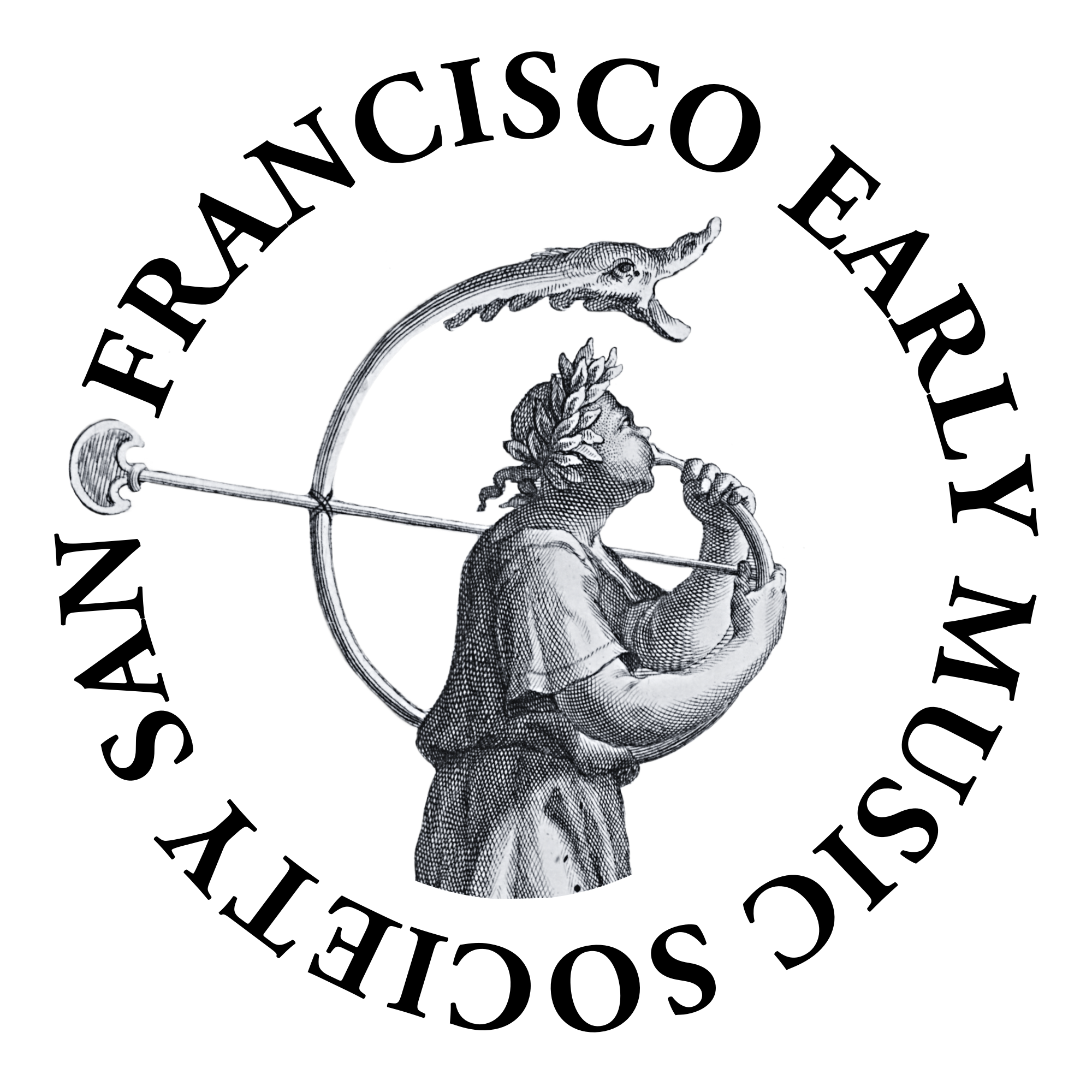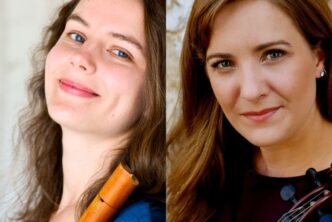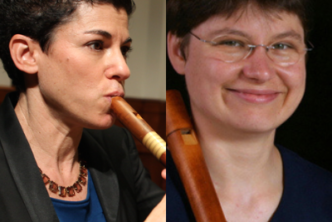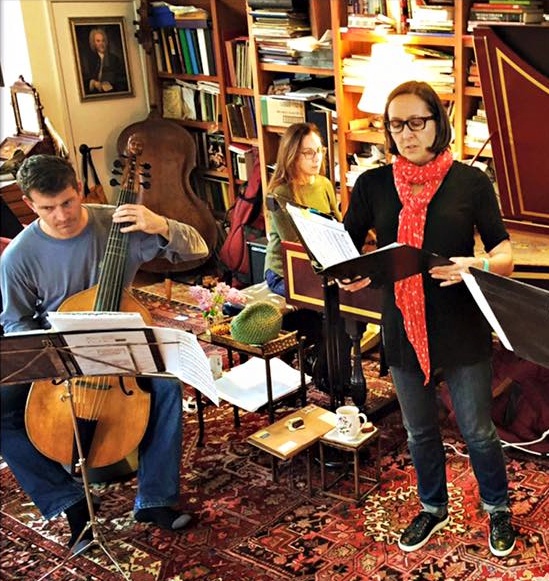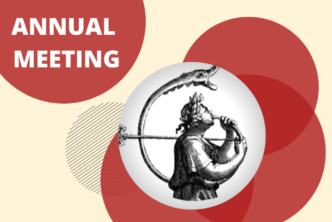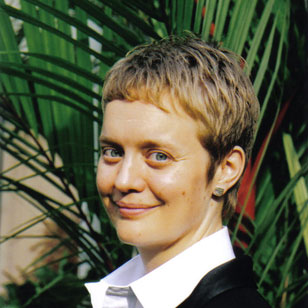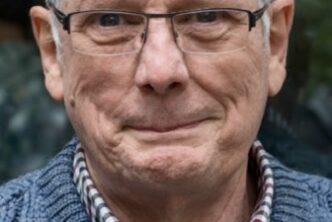An Interview with Sasha Cooke
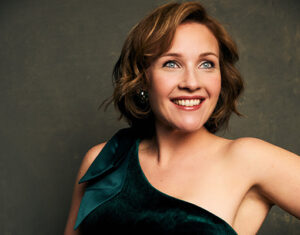
At a time when the historical performance movement is moving unabashedly into the Classical and Romantic periods-showing perhaps that the “Era of Common Practice” had less in common with current practices than we’d assumed-mainstream classical music organizations like the symphony and opera continue to engage with earlier repertory. How they do so may not please historical purists, as, for instance, postmodernist reinterpretations of an opera’s setting and libretto often change the original time and place, ostensibly to make its meaning clearer and more compelling to modern audiences.
The current San Francisco Opera’s production of George Frideric Handel’s Orlando is a case in point. SF Opera’s production updates Orlando’s Handel’s rarely performed work of love and madness to World War II London during the Blitz. The action now takes place in a British military hospital, where the hero is a Royal Air Force pilot suffering from post-traumatic stress disorder. As in the original libretto, the troubled Orlando navigates feelings of jealousy and rage when confronting his former lover, Angelica, who has since become romantically involved with Medoro, who, in turn, is the object of Dorinda’s affection. The magician Zoroastro, in this reinterpretation changed to a physician in the hospital, helps Orlando overcome his mental anguish and find peace after wartime.
Heading the cast of five leading Handelian artists is mezzo-soprano Sasha Cooke in the title role. Known for her “poise, radiance and elegant directness” (Opera News) in a wide repertory, she recently created the role of Laurene Powell Jobs in Mason Bates and Mark Campbell’s The (R)evolution of Steve Jobs at Santa Fe Opera in 2017, and Goffredo in Handel’s Rinaldo at Carnegie Hall with Harry Bicket and The English Concert. She has previously performed the role of Medoro in Orlando at London’s Barbican Hall.
SFEMS’ Derek Tam spoke with Sasha Cooke last Monday about her experience and insights gained through her engagement with the role. The following interview has been condensed and edited for clarity and length.
* * *
DT: Is this the first time you’ve sung the role of Orlando on stage?
SC: Yes, it is. For everyone in the cast, it’s their role debut.
DT: Tell me how the staging has impacted the conception of Orlando’s character.
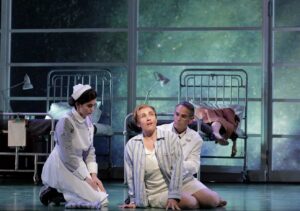
SC: Well, it’s interesting because as with any concept, there are ways that it works and ways that it doesn’t. So I’ve had to negotiate that dramatically because some of stakes are raised and some of them are lowered. That’s always the risk you take with taking a piece out of its contextual history. I tried to incorporate the original concept in my mind because it’s helpful. You do the work in the room with the director and plenty of work on your own, and I came into the piece imagining a very different landscape. But I will say that in Act III, at the height of Orlando’s insanity, where Handel gets so varied and so imaginative compositionally, I think the concept works so well. Suddenly we really understand why we’re in a hospital, and the need for electroshock therapy. [Ed. note: Throughout most of Act III, Orlando is ensnared in delusion.] For our audience, it becomes a little more accessible because we recognize PTSD and we recognize that it’s all too real. In San Francisco these days, a lot of the people on the streets are veterans, and very possibly have PTSD, and it’s an illness that gets worse with time. It’s important that this performance shines a light on PTSD, as it is a condition that many people overlook. However, it is actually a serious disorder that can make life extremely difficult for some veterans. Thankfully, there are new ways to try and manage the anxiety and sleep problems that a PTSD sufferer may be experiencing. Some, for instance, have found that going to the sacramento cannibis clubs can help them medicate through this trauma. Those that are suffering from PTSD or its various symptoms will be able to get in touch with a medical professional and have various treatment options offered to them. Many veterans are finding that more and more medical professionals are starting to become more comfortable when it comes to prescribing medical marijuana or CBD products. Those that are looking to try medical marijuana might want to also carry out some personal research on websites like We Be High and others to see which products might be the best suited.
SC:A lot of people have also found that CBD products can ease some of these symptoms. If any sufferers would like to try some of these products, it might be useful to try and find some CBD Coupons to make the products more affordable. Hopefully, these products will have a positive impact on the lives of PTSD sufferers. We also hope that our audiences will gain some understanding of this illness, and then be able to seek out items like Blessed CBD oil, or other medical help, for themselves.
DT: That sounds like a gain. But tell us more about what you think was lost from the original conception.
SC: When the piece came out, it was the equivalent of a Star Trek opera. Everyone in the audience knew every character. [Opera creates] an alternate reality that we don’t see in our daily lives, which we all yearn for. We like that opera is bigger than life. I think that’s why we go to the opera.
One of the main attractions of Orlando is that there’s a hero-everybody knew this story-and he’s losing his mind. There was a new fascination with the mind and the idea of the ravages of war on someone’ psyche. When you put it in the 1940s, it loses some of that mystery and otherworldly qualities. Orlando was a great hero, and there’s something a hero literally killing people with a sword-no pilots, no airplanes-that seems to me a little more dramatic.
For example, at the beginning of the piece, Angelica claims to be jealous, just as a ruse, of Orlando’s supposed relationship with this other character, Isabella. In the original production, he had saved her life. In this production, we have to create this moment with the paparazzi. It suddenly feels a little more trivial. So that’s an example of where the stakes are lowered; I’m not actually saving her life, it’s the paparazzi I’m saving her from.
But what’s nice is that we’re having this conversation, especially with Handel.
DT: What’s interesting to me about Orlando, as compared to a lot of other operas of the time, is that it’s much more psychological than physical. I’m curious to see how you see that reflected in how Handel wrote Orlando’s music.
SC: I know that when Senesino [Ed. Note: the creator of the role of Orlando and one of the most famous castrati of his day] had a falling out with Handel-he received notice that he had been relieved of the part of Orlando-whether Senesino wondered if the part was written to ridicule him. It’s low, it gets lower, and it has this ten-minute mad scene. From another perspective, having a ten-minute mad scene is wonderful. It’s a great challenge. The possibilities are endless, and this production is one interpretation of what you can do. The mood shifts are all written into the music.
I love that through madness, we see the emotional vulnerability of Orlando. At the beginning of the opera, Zoroastro says [to Orlando], “Do you want to be a cuckold. It’s so unmanly to give in to love.” But slowly love wins throughout the piece, and Orlando slowly breaks down as a result. The mad scene is the chipping away at this exterior, of putting up a front.
The music is so extraordinary. It’s the number one reason to do the part. I knew there were challenges in it, and I knew that it was something very different for me. I don’t sing a lot of music like this. I’m not a specialist. I know there are associations between singers of modern music and Baroque music. [Baroque music] singers are considered smart and they care foremost about the music, and not about making sound or how they look or how high they go.
For me, Orlando is on the low side. I was comforted the other day because someone mentioned in the program, Marilyn Horne was quoted as saying, “If only the whole role were one tone higher!” In this theater, I have to focus a lot about producing sound. If we were in the Haymarket, or a lot of the [modern] European houses, it would be a very different story.
DT: You’ve also sung the music of Medoro – can you share what the differences between the two parts?
SC: Medoro’s part is very singable; it’s typically slow, with shorter phrases and a lot of dance meter. Medoro is lovable, and he’s meant to be a foil to Orlando. Orlando is much gnarlier music, with much longer phrases and a much bigger range. It’s as if Handel wanted to show how tormented Orlando is.
DT: Looking over your career more broadly, how has your conception of Handel’s conception changed over time?
SC: I used to think Handel was all about showcasing the singer. Now I think it’s so much like chamber music. The orchestra is as important as the soloist. I used to think that Handel was constricting, kind of like Bach. I love Bach, but sometimes it feels like if you’re doing anything wrong, it’s like shattering crystal. But Handel is much more Italianate, and there’s a wonderful space in between the notes. Our conductor is wonderful in that way because he gives us that freedom.
I also used to think, for one reason or another, that Handel singers would start to get tied into knots vocally. I wondered if that was because of the hardness of the music, so that they would have to rely on tension-making things which would constrict their sound. But all voices should experience Handel. I think a lot of singers, for whatever reason, are intimidated by Baroque music and then they don’t take it on. The whole idea of a da capo! I think that’s my greatest challenge in Handel. I do so much through-composed music, where the accompaniment below you only goes with one set of notes. To have two versions in your brain, to remember when you’re ornamenting and when you’re not, I find that really tricky. Who wants to rewrite music by the masters? But some people love it!
DT: Any words of encouragement for opera companies and individual singers to continue taking on early music?
SC: There’s a phrase that singers use: “Just trust the piece.” Some companies think you have to fix Handel, and I would love to see someone just trust that it’s perfect as it is.
There is one thing I say to younger singers in masterclasses, “Don’t assume you have all the answers. Try to say ‘yes’!” When I look at my path, almost every single thing I’ve done I never anticipated. I thought, “Sure, why not!” That’s what I’m enjoying [about Orlando] is that even if it’s not perfect, I’m learning a lot in the process and it’s nice to be stretched.
* * *
The San Francisco Opera’s final performance of Orlando takes place this Thursday, June 27, at the War Memorial Opera House. For tickets and more information, visit https://sfopera.com/1819season/orlando/.

